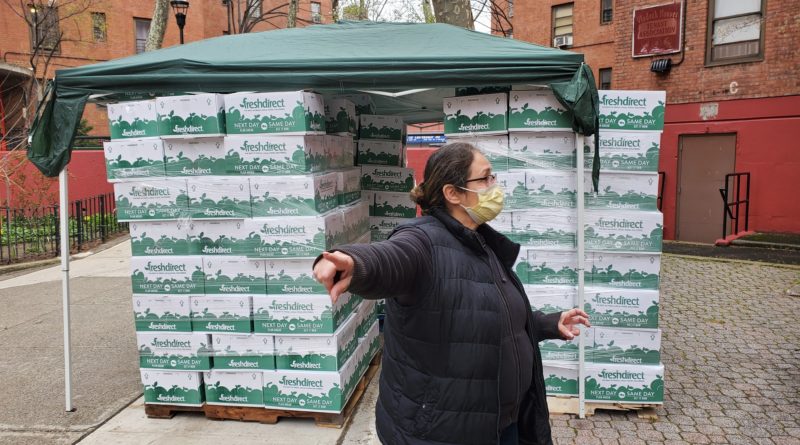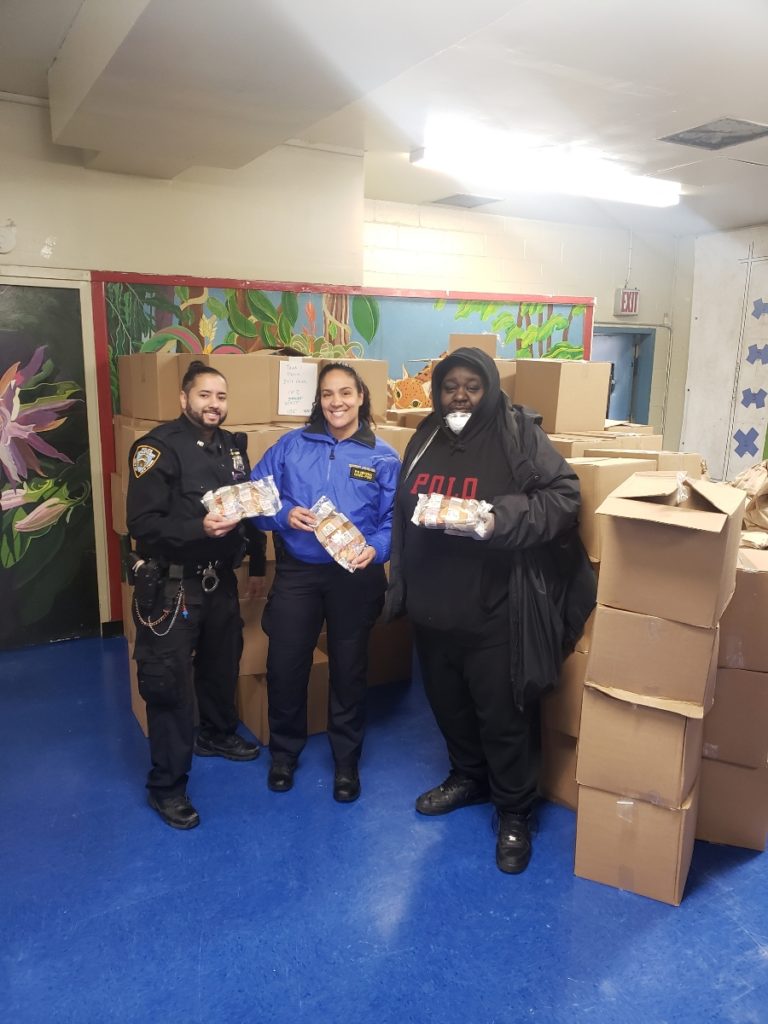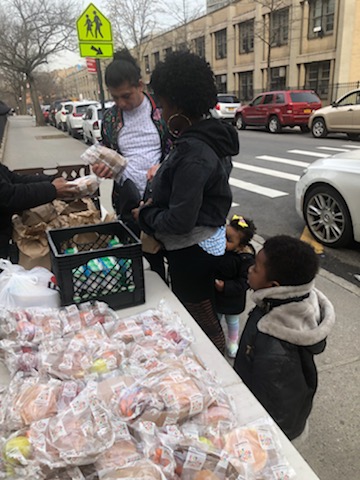NYCHA Residents Take Care of Their Communities
NYCHA residents have stepped up to help each other and their communities during the COVID-19 pandemic. Throughout the city, residents are joining NYCHA staff, elected officials, City agency and non-profit partners, and others to ensure that the most vulnerable residents have access to food.
Here are just a few examples:
At Butler Houses in the Bronx, resident volunteers like Kathy Dejesus and Barbara Smith are distributing 700 to 900 meals a day, seven days a week from 10:15 a.m. to 2 p.m., to seniors and families. Residents are working with the Directions For Our Youth (DFOY) Butler Cornerstone, with assistance from Assemblymember Michael Blake. In addition, DFOY is working with Resident Association President Erik Farmer to distribute food to those in need at Forest and McKinley Houses.
Recently, Jackson Houses Resident Association President Daniel Barber, and other volunteers, helped distribute 2,700 meals to NYCHA residents in the South Bronx.
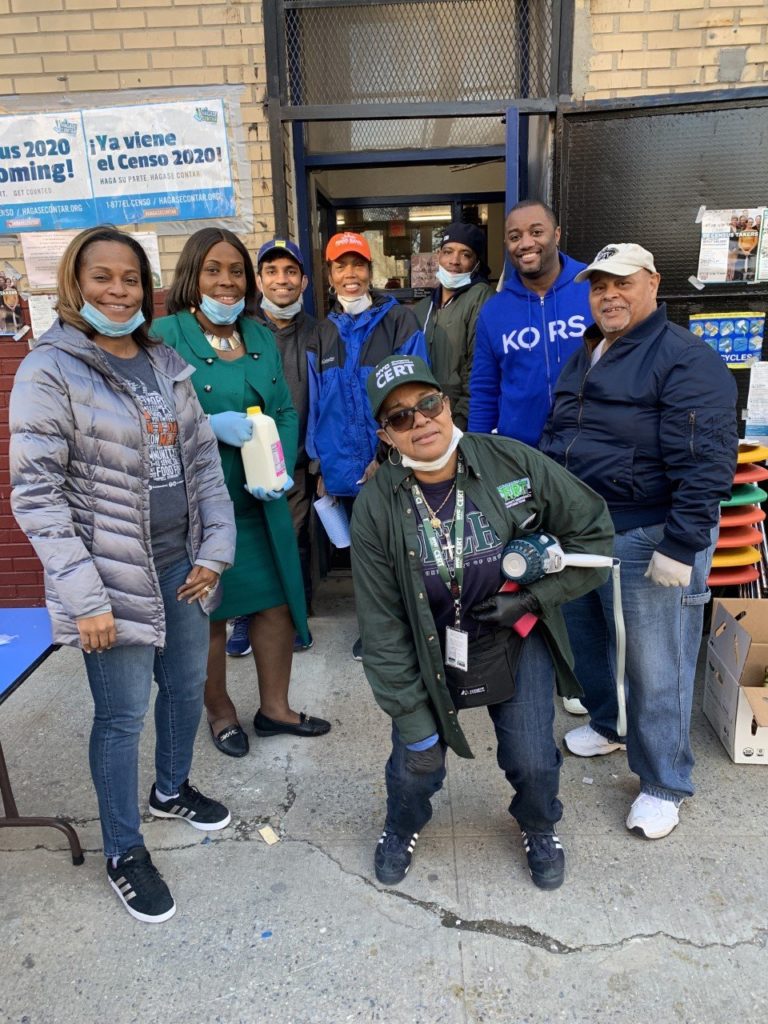
Clay Avenue Resident Association President Maria Forbes, Council Member Vanessa L. Gibson, and other resident and staff volunteers helped distribute food from Food Bank NYC.

At Vladeck Houses in Manhattan, Resident Association President Nancy Ortiz and other residents distributed food to seniors. Manhattan Borough President Gale Brewer helped facilitate the food deliveries from FreshDirect, Boar’s Head, and Poland Spring. Ms. Ortiz said: “It is important to let our most vulnerable know they are not forgotten during these scary times. But what was most rewarding was to see all my viejitos faces filled with gratitude and their blessings as the food was being delivered.”
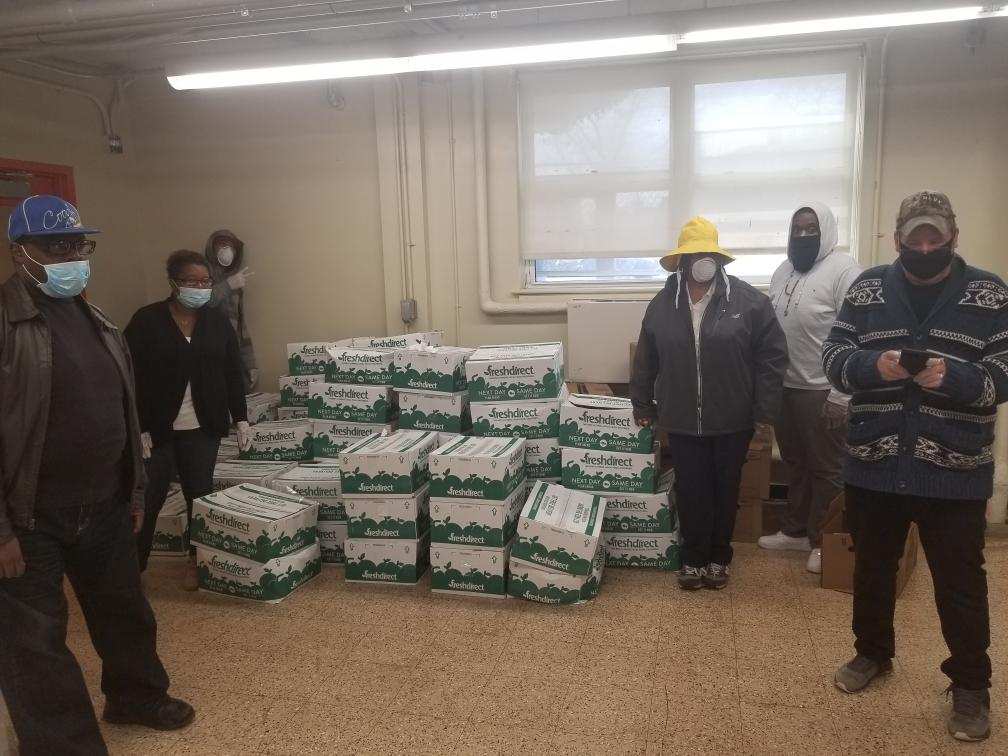
At Redfern Houses in Queens, Resident Association President Maggie Larkin joined with other volunteers to distribute FreshDirect food donations to residents.
There are many more stories of NYCHA residents who are checking in on neighbors; volunteering in their communities; and working at essential businesses such as grocery stores, hospitals, and transit systems to ensure that New Yorkers have access to the resources they need.

